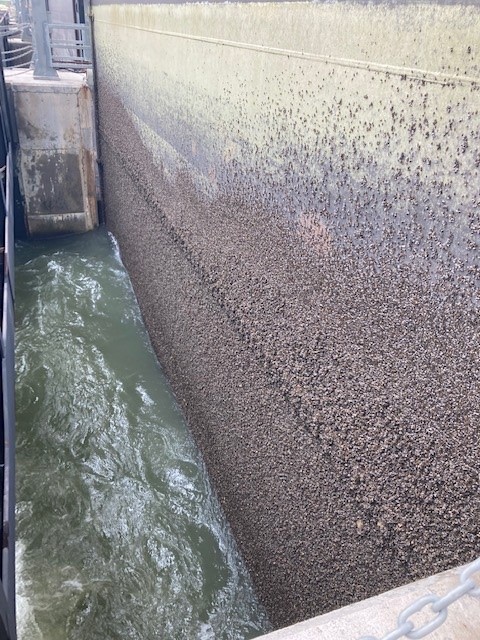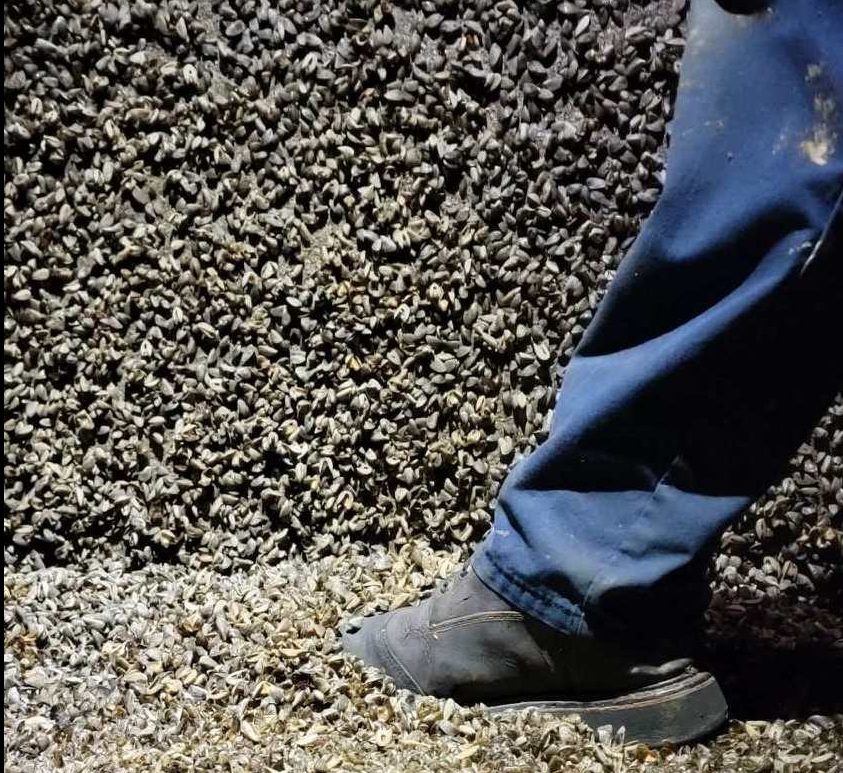Manitoba Hydro is dealing with a plague of zebra mussels covering some of its generating stations, and says it will spend millions this summer in an effort to curtail the invasive species.

Hydro’s Bruce Owen told 680 CJOB’s The Start that six generating stations along the Nelson River, which drains from Lake Winnipeg all the way north to Hudson Bay, are affected by the pesky mollusks.
A station at Grand Rapids is also being added to the list of facilities that need treatment this year. The solution, Owen said, has been to use a low-level chlorine treatment along with lots of manual scraping and cleaning.
While the cost of the treatment is about $2 million each year, he said the result of doing nothing could be even worse.
“If we pretended it wasn’t there, there’s a chance of the turbines overheating and we’d have to shut them down in order to fix them.

Get daily National news
“Zebra mussels could also get into the intake pipes that we use for fire protection. Should a fire break out at a generating station and the water intake pipes are clogged and we can’t put it out … that creates its own nightmare.”
Owen said Hydro has been keeping close tabs on the invasive species since the province began warning about them years ago.
“We first got an indication that they were moving out of Lake Winnipeg in 2019, and the following year we started saying, ‘OK, they’re getting a little worse,’ so we came up with a plan.”
That plan, however, is becoming more costly — in terms of both time and worker hours — due to the addition of the Grand Rapids station.
“This treatment process will continue as long as the problem persists,” he said, “and who knows how long that will be.”

Hydro isn’t the only organization taking extra precautions this year in Manitoba.
Dameon Wall of Parks Canada said additional measures are being taken to keep Clear Lake, in Riding Mountain National Park, free of zebra mussels.
“We can’t say that there are zebra mussels in Clear Lake right now, but we also can’t say that there aren’t,” he said.
“We had some water samples taken and tests came back over the winter that indicated the presence of environmental DNA for those mussels. That’s a sign that we need to pay closer attention to what’s going on in the lake, and that’s what’s led us to the decision that is being made today.”
That decision, Wall said, relates to boat users with trailered vessels. While mandatory inspection and decontaminations for self-propelled vessels like canoes or kayaks remain in place, trailered vessels have new requirements.
“It’s probably the most significant change we’re going to see this year,” he said.
“If you have a trailered vessel and you only want to use it on Clear Lake this year, you’ll have the opportunity to do that. In order to qualify for that, your vessel must not have been in any other water body in 2023, and you’ll have to undergo an initial inspection before June 15.”
Qualifying boats and trailers will need to have a special tag affixed by park staff to be able to use the lake. Any boats with tags that have been removed or otherwise tampered with will be banned from using the lake for the season.
“That is an effort to really reduce that transmission. The movement of zebra mussels between water bodies is a big challenge and that’s why we’re doing that.”














Comments
Want to discuss? Please read our Commenting Policy first.